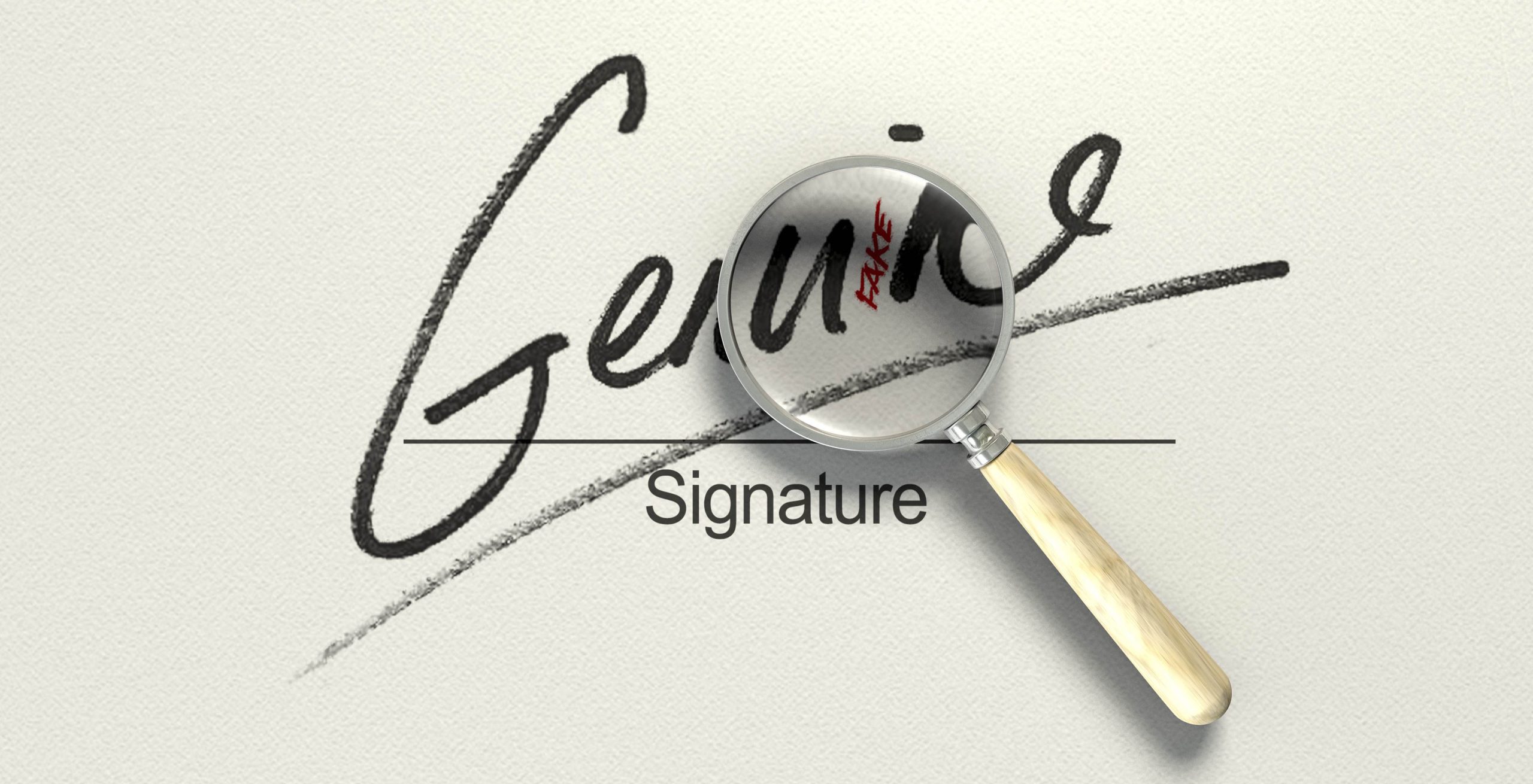Fraud, ID and Personal Finances

Legal oversight of major transactions vastly reduces the chances of forgery
Anyone who has been through a house purchase, re-financing or loan application will be familiar with the regular request from lawyers for proof of identification. While at times it may seem like overkill, there are many reasons why we go to such lengths. A recent case before the Ottawa courts illustrates the dangers.
The case involves forged signatures on loan documents that could have been avoided with legal oversight. Rola Ghraoui is living in a six-bedroom home but is on social assistance because her husband allegedly obtained $995,000 in loans against the property without her knowledge or consent.
Although the case has yet to be settled, a forensic expert has concluded that Ms. Ghraoui did not sign the loan documents. While the Royal Bank of Canada has acknowledged in court documents that the papers may not hold Ms. Ghraoui’s signature, it contends that she derived the benefit of the funds in paying off another bank to which she and her husband owed debt. The bank is seeking possession of the home to satisfy the loans against its value. Had the proper steps been taken, Ms Ghraoui would not been in this predicament.
In financial transactions, it is essential that the identity of the loan applicant is confirmed and that signatures are witnessed. To confirm an individuals identity a lawyer will need to see two forms of photo identification. The most common forms of photo identification in Ontario are a valid driver’s license and a passport. Click here to see a complete list of acceptable photo identification in Ontario. Ontario health cards are not accepted as identification.
If you are planning a house purchase or are applying for any other form of loan and do not have two pieces of acceptable identification you should apply for an Ontario Photo Card as soon as possible.




